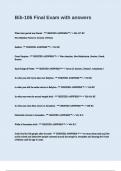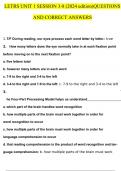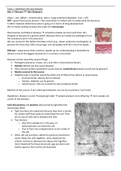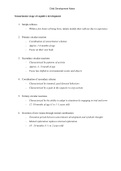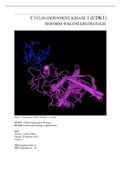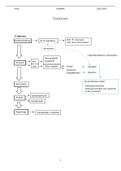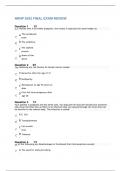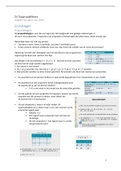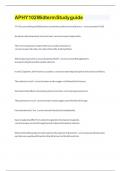New Topic: Philosophy of Religion
Design Argument (Teleological Arguments)
Arguments relating to the existence of God (Teleological Arguments):
- Design argument for analogy (Hume)
- William Paley – design argument (finding watch in the woods) – spatial order/purpose
- Richard Swinburne’s design argument – temporal order/regularity
Studying the God of…?
- Philosophy/ the Philosophers
- Judeo-Christianity
- Abrahamic tradition
- Classical theism
His characteristics …
- Omnipresent = always present
- Omniscient = all knowing
- Omnipotent = all powerful
- Omnibenevolent = all loving
- One of him = monotheism
- Transcendent =
- Metaphysical =
Types of believer…
- Theist = believes in God
- Deist = a believer in a personal God
- Agnostic = one who does not know if there is a God or not
- Igtheist = no knowledge of what we mean by the concept of God
Types of argument …
- Deductive arguments – certainty
- Inductive arguments – probability
- Arguments from analogy – a form of inductive argument
- Teleological – design has a purpose(design/harmony)
- Cosmological – arguments based on cause
- Ontological – the idea that God exists therefore God exists
Deductive = premises entail the conclusion.
e.g. a) rain is water…b) water is wet… therefore…c) rain is wet
this is a valid deductive argument – is there a problem w premise b). can water be wet?
A=B and B=C therefore A must = C
Inductive = premises provide good support for the conclusion but do not establish is with certainty
e.g. P1: the sun rose yesterday. P2: the sun rose today. P3: the sun will rise tomorrow
What is the problem with this argument… it may be wrong
Most arguments take this form in politics and science (scientific arguments must be proven wrong)
Inference (compare implication)
Analogy = a comparison between something you know and want to explain.
It is powerful and persuasive. But also, subjective
However… ALL ANALOGIES AT SOME POINT BREAK DOWN.
, Design Argument: David Hume
Metaphysics of God
Hume’s Design Argument:
“The intricate fitting of means to ends throughout all nature is just like (though more wonderful than) the fitting of
means to ends in things that have been produced by us – products of human designs, thought, wisdom, and
intelligence. Since the effects resemble each other, we are led to infer by all the rules of analogy that the causes are
also alike, and that the author of nature is somewhat similar to the mind of man, though he has much larger faculties
to go with the grandeur of the work he has carried out.”
In other words… just as man-made objects are made with various parts put together for a purpose, so too natural
objects are also intricate with various parts put together for a purpose. This shows how in both situations both have a
designer. For example, a watch is intricate with various parts made by a designer for the purpose of telling the time, just
as the human eye has many complex parts working together for the purpose of seeing made by a designer.
- “Fitting of means to ends” = parts fitting together for a purpose.
- “The effects resemble each other” = both human products and nature display purpose.
- “The causes are also alike” = both natural and manmade objects have a designer.
- “he has much larger faculties” = the designer of nature is more powerful/wonderful than the designers of
man-made objects because nature is more complex/impressive than man-made objects.
Hume’s criticisms of the design argument:
HUME DOES NOT AGREE WITH HIS ARGUMENT FROM ANALOGY, HE JUST CREATES IT IN ORDER TO
KNOCK IT DOWN
Spatial Disorder
Design arguments propose that there is order in the universe. 1)Spatial Order (in space), 2) Temporal
Order (time or sequence). BUT lots and lots of examples of spatial disorder – stars in the sky… trees on the
African plains…weeds in a garden.
Objections to the analogy
The analogy isn’t very strong because man-made and natural objects are not similar – an analogy needs
the two topics being described to be somehow correlated. Hume calls this the ‘great disproportion’ this
means that we can’t compare one small part of the universe to the whole universe as being similar to
human intelligence because human intelligence compared to the whole universe is disproportionate. So,
we can’t reasonably infer that nature is like the human mind. Also, ANALOGIES ALWAYS BREAK DOWN.
Whether a designer is the best explanation
A designer is not the only possible explanation – it could be the result of infinite variation… randomness is
a possible cause (Darwin – Origin of Species 1859…Descent of Man 1871). Hume isn’t stating which
explanation is correct – his counter- argument that there are other logical possibilities … in other words …
designer isn’t necessarily the best explanation.
Arguing from a unique case
The analogy fails because… there is a problem with cause and effect… we have to reserve judgment and
can’t straightforwardly infer causes from effects… one single instance IS NOT ENOUGH to infer a cause…
e.g. we can’t infer this universe was designed by a God because we only know of this universe.
Design Argument (Teleological Arguments)
Arguments relating to the existence of God (Teleological Arguments):
- Design argument for analogy (Hume)
- William Paley – design argument (finding watch in the woods) – spatial order/purpose
- Richard Swinburne’s design argument – temporal order/regularity
Studying the God of…?
- Philosophy/ the Philosophers
- Judeo-Christianity
- Abrahamic tradition
- Classical theism
His characteristics …
- Omnipresent = always present
- Omniscient = all knowing
- Omnipotent = all powerful
- Omnibenevolent = all loving
- One of him = monotheism
- Transcendent =
- Metaphysical =
Types of believer…
- Theist = believes in God
- Deist = a believer in a personal God
- Agnostic = one who does not know if there is a God or not
- Igtheist = no knowledge of what we mean by the concept of God
Types of argument …
- Deductive arguments – certainty
- Inductive arguments – probability
- Arguments from analogy – a form of inductive argument
- Teleological – design has a purpose(design/harmony)
- Cosmological – arguments based on cause
- Ontological – the idea that God exists therefore God exists
Deductive = premises entail the conclusion.
e.g. a) rain is water…b) water is wet… therefore…c) rain is wet
this is a valid deductive argument – is there a problem w premise b). can water be wet?
A=B and B=C therefore A must = C
Inductive = premises provide good support for the conclusion but do not establish is with certainty
e.g. P1: the sun rose yesterday. P2: the sun rose today. P3: the sun will rise tomorrow
What is the problem with this argument… it may be wrong
Most arguments take this form in politics and science (scientific arguments must be proven wrong)
Inference (compare implication)
Analogy = a comparison between something you know and want to explain.
It is powerful and persuasive. But also, subjective
However… ALL ANALOGIES AT SOME POINT BREAK DOWN.
, Design Argument: David Hume
Metaphysics of God
Hume’s Design Argument:
“The intricate fitting of means to ends throughout all nature is just like (though more wonderful than) the fitting of
means to ends in things that have been produced by us – products of human designs, thought, wisdom, and
intelligence. Since the effects resemble each other, we are led to infer by all the rules of analogy that the causes are
also alike, and that the author of nature is somewhat similar to the mind of man, though he has much larger faculties
to go with the grandeur of the work he has carried out.”
In other words… just as man-made objects are made with various parts put together for a purpose, so too natural
objects are also intricate with various parts put together for a purpose. This shows how in both situations both have a
designer. For example, a watch is intricate with various parts made by a designer for the purpose of telling the time, just
as the human eye has many complex parts working together for the purpose of seeing made by a designer.
- “Fitting of means to ends” = parts fitting together for a purpose.
- “The effects resemble each other” = both human products and nature display purpose.
- “The causes are also alike” = both natural and manmade objects have a designer.
- “he has much larger faculties” = the designer of nature is more powerful/wonderful than the designers of
man-made objects because nature is more complex/impressive than man-made objects.
Hume’s criticisms of the design argument:
HUME DOES NOT AGREE WITH HIS ARGUMENT FROM ANALOGY, HE JUST CREATES IT IN ORDER TO
KNOCK IT DOWN
Spatial Disorder
Design arguments propose that there is order in the universe. 1)Spatial Order (in space), 2) Temporal
Order (time or sequence). BUT lots and lots of examples of spatial disorder – stars in the sky… trees on the
African plains…weeds in a garden.
Objections to the analogy
The analogy isn’t very strong because man-made and natural objects are not similar – an analogy needs
the two topics being described to be somehow correlated. Hume calls this the ‘great disproportion’ this
means that we can’t compare one small part of the universe to the whole universe as being similar to
human intelligence because human intelligence compared to the whole universe is disproportionate. So,
we can’t reasonably infer that nature is like the human mind. Also, ANALOGIES ALWAYS BREAK DOWN.
Whether a designer is the best explanation
A designer is not the only possible explanation – it could be the result of infinite variation… randomness is
a possible cause (Darwin – Origin of Species 1859…Descent of Man 1871). Hume isn’t stating which
explanation is correct – his counter- argument that there are other logical possibilities … in other words …
designer isn’t necessarily the best explanation.
Arguing from a unique case
The analogy fails because… there is a problem with cause and effect… we have to reserve judgment and
can’t straightforwardly infer causes from effects… one single instance IS NOT ENOUGH to infer a cause…
e.g. we can’t infer this universe was designed by a God because we only know of this universe.

